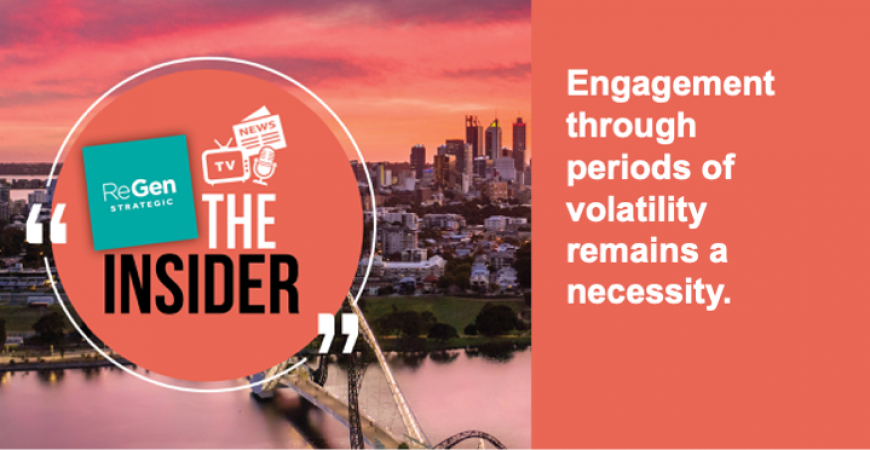“May you live in interesting times” is a hackneyed interpretation of a traditional Chinese curse, but it appears to be apt for the present.
Inflection points are arising globally, through increasing protectionism and isolationism, in Australia, with a renewables versus nuclear debate at the coming election, and finally in WA, on the ungainly precipice of a wave of energy transition opportunities.
With the summer holidays in the rearview mirror, the dual state and federal elections are hard to miss in Western Australia particularly.
No major surprises are expected at a state level, but there is an assumption that WA Labor will lose a handful of seats to the WA Liberals, which will shake off the effects of the 2021 election.
Rather than a miracle win, the conventional wisdom is that the WA Liberals attain a pass mark if they can win enough seats to be electable in 2029.
Combined with reforms to the Legislative Council which should ensure a more diverse representation across the political spectrum, the process of engaging with political stakeholders in Western Australia will be a much more colourful task through the next term of government.
At a federal level, all bets are off. At this stage, a definitive majority for either Anthony Albanese or Peter Dutton appears to be unlikely.
Unlike many European nations, Australian political systems are not used to minority governments or power-sharing arrangements.
The head-spinning pace of the newly-inaugurated Trump presidency provides another set of factors and lessons that are being reacted to in real-time.
At the time of writing, DEI, foreign aid and tariffs are the populist tracks on high rotation in the refurbished Oval Office.
Wars, armed conflicts and economic barriers across multiple continents have scrambled trade relationships and traditional methods of diplomacy.
Inflation, stretched supply chains and a scarcity of skilled labour have made advanced economies reconsider the merits of relying on outsourcing.
With this level of geopolitical tension and economic uncertainty, expect business decisions and strategic choices to become more hard-nosed through 2025.
This should not be seen as a white flag for issues that are caught in political rhetoric or culture wars.
Rather, it will be increasingly imperative to highlight and quantify the underlying value of efforts to progress your objectives – whether it be a major industrial development, a proposed legislative reform or a new workplace initiative.
A straightforward means of doing this is to not retreat. Keep talking and advocating – to government, to businesses and to employees.
ReGen Strategic’s stakeholder engagement team supports our clients in the design of engagement strategies that can adapt to changing circumstances. While there is a role for short-term tactics, it is essential that your organisation clarifies its understanding of the ‘why’ – or long-term engagement objectives.
During ‘interesting times’, rather than backing down on issues that might run afoul of a renewed strain of populism, clearly and firmly stating why a course of action is being undertaken has never been more critical.
 ReGen Strategic
ReGen Strategic